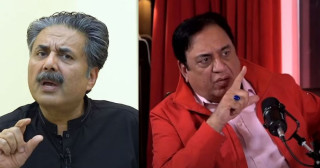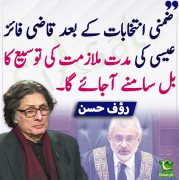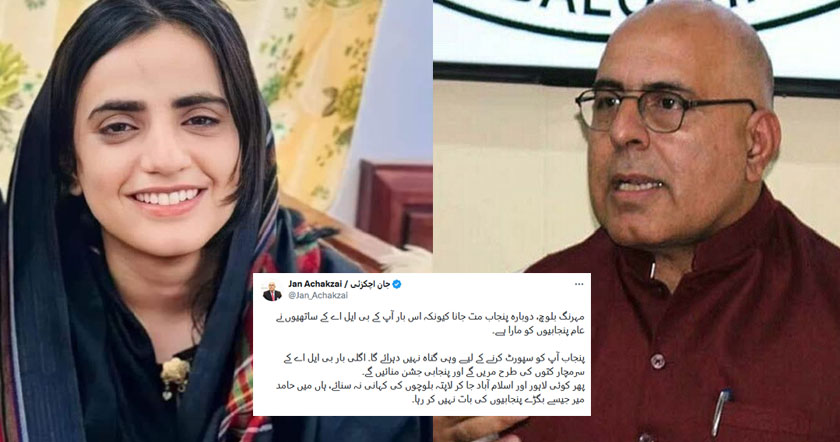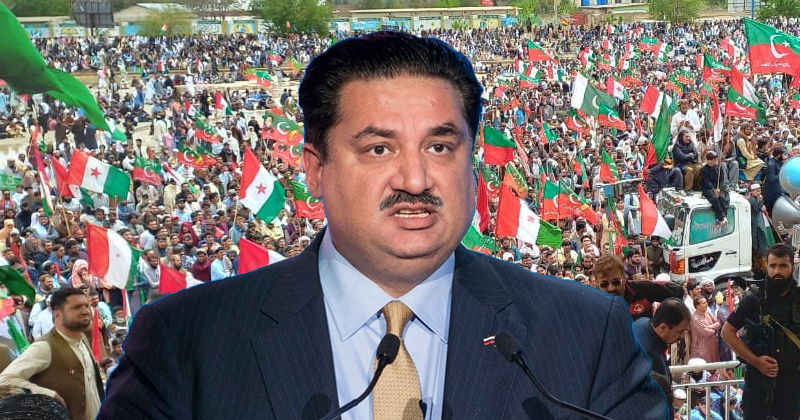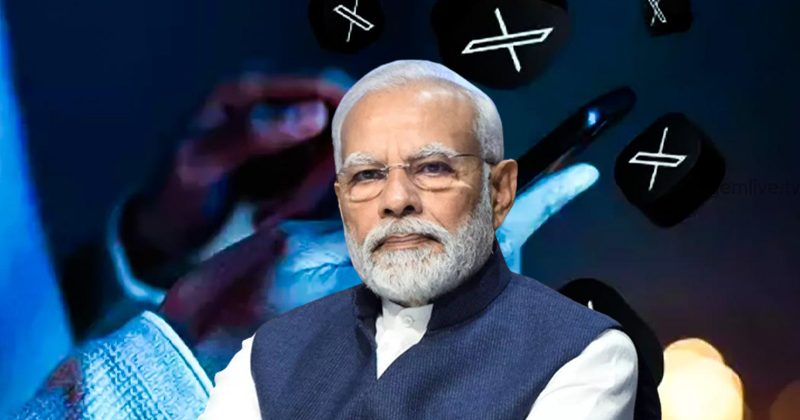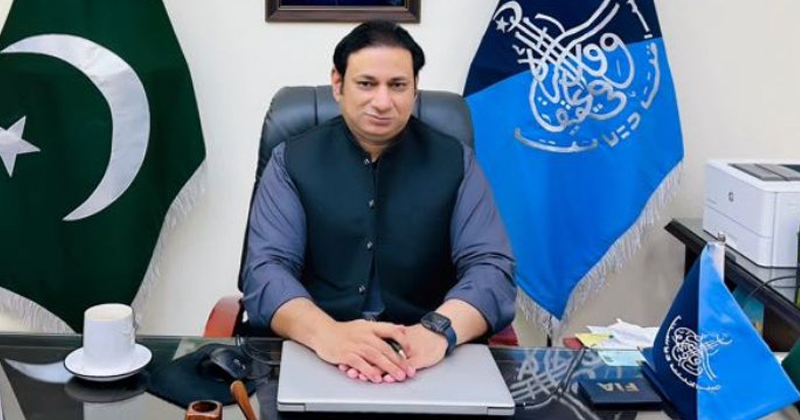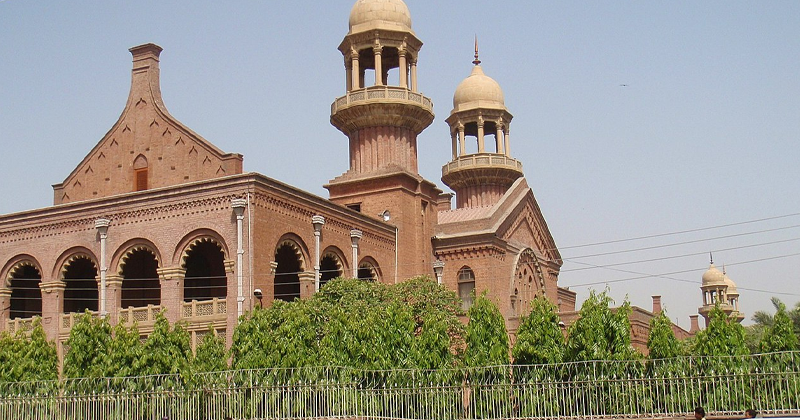Failed state or Weimar Republic?
Pakistan remains a military-dominated rentier state, still committed to American and Gulf Arab alliances
By Omar Ali
A friend recently wrote to me that Pakistan reminded him of the Weimar republic; an anarchic and poorly managed democracy with
Pakistan remains a military-dominated rentier state, still committed to American and Gulf Arab alliances
By Omar Ali
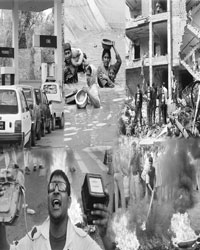
There are clearly some features that do suggest a comparison with Weimar Germany. Pakistan, like the Weimar republic, seems to be in a state of perpetual crisis as well as great ferment. Its mainstream political formations are increasingly discredited and appear impotent. Law and order is breaking down and unemployment and inflation stalk the land.
There is also a determined fascist alternative and their propaganda is attracting more and more adherents, not only among traditionally rightwing groups but even among those who previously sided with socialist parties. But the differences are even greater than the similarities. First of all, we are not Germans and Pakistan is not Germany. This is not a highly developed and scientifically advanced society with an ethnically homogenous culture. Nor do we have universal literacy, outstanding higher education, and a powerful business and engineering tradition, temporarily thrown into disorder by defeat in an ill-advised war. Far from having suffered a devastating defeat in war, we have in fact managed to use the ongoing war on terror to significantly increase the power and reach of our armed forces.
Our religious fascists do bear some resemblance to the Nazis, but our Left cannot hold a candle to the multiple strands of German left wing politics in the 1920s and our fragmented national identity bears no comparison to Germany. In short, we are NOT the Weimar republic and that comparison just muddles the issue.
What about the other statement: are we a failed state? In spite of all our problems, that too does not appear to be true. We are not a very successful state, but we are not a failed state and not likely to become one in the foreseeable future. A more accurate reading would be that we are a potentially prosperous state that is held back by rapacious and incompetent rentier elite.
This elite is not just corrupt (a feature it would share with many third world countries) but also uses perpetual conflict with India and the nuisance value of Islamist militants to sustain national identity at home and obtain funding from foreign patrons abroad. In other words, we add a layer of peculiarly Pakistani problems on top of the problems we share with all poor and under-developed post-colonial states. To the usual challenges of inequality, incompetence and corruption, we added an economically and culturally irrational hard border with India and then, as if to compound our problems, nurtured religious terrorists who have slipped out of control and started an economically and socially devastating civil war within the country.
The origins of this peculiarly Pakistani problem go all the way back to partition. Right from the creation of Pakistan, the ruling elite started looking for foreign patrons to try and balance a perceived disadvantage vis a vis India. Jinnah sahib himself is known to have advertised that pro-Western Pakistan would be a bulwark against Russian expansionism and that the USA and other Western powers should pay Pakistan for this purpose (this expansionism may have been mostly imaginary, but the Americans did not really need convincing) and his successors were quick to jump into CENTO and SEATO in exchange for military and civilian aid. This set the stage for a rentier ruling establishment that soon became very adept at milking its foreign patrons.
An ill-considered war with India in 1965 set them back a little and in 1971 the larger half of the population opted out of the arrangement with Indian help, but the remaining state proved easier to manage for the military-bureaucratic elite and after Bhutto redeemed the position of the armed forces, they repaid him by hanging him and stepped decisively out of civilian control (a position they have never really surrendered since then).
The Afghan war was a godsend for the ruling elite, providing them with unheard of riches and opportunities, but it also led to the introduction of armed Islamist fanatics into the state and unfortunately for the poor people of the nation, it triggered new and more ambitious dreams in some members of the ruling establishment. After the Americans finished their dirty work in Afghanistan and left, the establishment decided to direct these newfound assets towards Kashmir and eventually to set up a zone of Pakistani influence in Afghanistan and central Asia. We multiplied the militants by a factor of 10 with such enthusiasm that Gaddafi stadium was being used for displays of Jihadi kartab!
Money from Saudi Arabia and the Gulf states bridged the gap created by suspension of American subsidies and as China rose in power; it came to be regarded as a model for the future (replacing the Latin American dictator model imported with modifications from Langley). That there was no comparison between Pakistans rentier elite and the leadership of the Chinese communist party (or between our role as neo-colonial outpost and the last 60 years of Chinese history, or between our confused and shallow national identity and 5000 years of Chinese civilization) was happily overlooked.
The terrorist attack on 9-11 provided another opportunity to restore traditional arrangements with the Americans, but it also led to a new set of challenges as the Americans wanted all or most of the religious terrorist networks shut down in the course of this new mission. Since the half a million militants trained under the previous grand scheme refused to all go home quietly (or at least, to stay quiet till the Americans got distracted elsewhere), this challenge has not been easy. Thousands of Pakistanis have lost their lives in the ensuing civil war and there is no end in sight. Even the resilient people of Pakistan cannot engineer an economic miracle in the middle of a civil war, so the state has become even more dependent on foreign funding than it used to be.
There is some talk from the smartly dressed spokesmen (and women) of the deep state that better days lie ahead because China has become much richer and will supposedly take up the slack should the Americans pull out. They may also be hopeful that signs of popular unrest across the Arab world may mean we see an increased demand for Pakistani mercenaries as well as greater support from Gulf princes anxious to keep Pakistan on their side. But these hopes appear exaggerated and are, may be, meant mainly as propaganda aimed at the new half-educated constituency that flocks to Facebook sites dedicated to Zaid Hamid and others like him.
As the Raymond Davis affair indicates, the real situation may be more precarious and the actual dependency on US aid may be greater than admitted. Instead of a transition to some Chinese sponsored heavenly peace, what is more likely is that we will see more of the same: A continuation of the alliance with the Pentagon (since neither side is in a position to change course or even truly wishes to change course at this time) and of the confused but unstoppable civil war against the true-believer Jihadists. Similarly, the gulf states are in no mood to see a jihadist Pakistan, so the civil war against our old friends from the various militant organisations is bound to continue.
The bottom line is that we are neither a failed state, nor the Weimar republic; we are a military-dominated rentier state, still committed to American and Gulf Arab alliances and unlikely to see either sudden collapse or dramatic improvement in the foreseeable future.
The writer is an academic physician based in the US (http://www.jang.com.pk/thenews/mar2011-weekly/nos-27-03-2011/dia.htm#5



